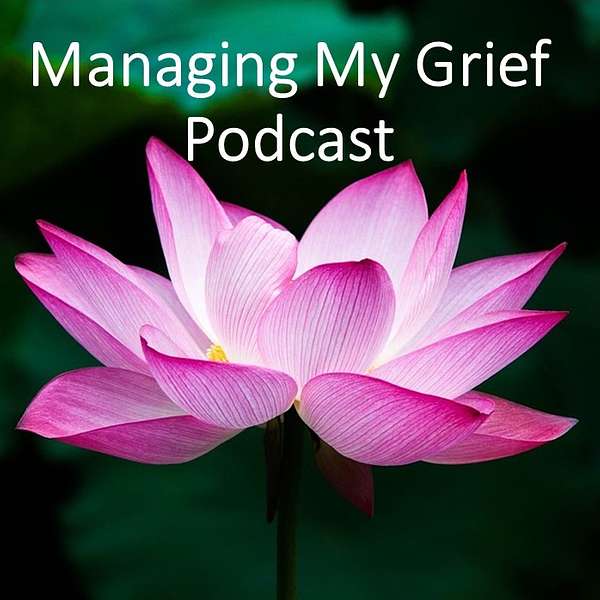
Managing My Grief
Managing My Grief
MMG9: Insights from Grief Workshop, Arlington, VA
The belief behind the technique is when we are able to non judgmentally acknowledge and accept another person for where they are, it helps reduce intense emotions. By engaging in radical acceptance, the gentleman is able to reduce his level of frustration. Keep in mind that radical acceptance doesn’t equal agreement, it’s a mere way of acknowledging what is happening in a nonjudgmental fashion.
That’s an excerpt from the show. Today, we’ll be discussing Insights from my most recent Managing My Grief Workshop, and, here’s the intro.
Intro
I’m glad you chose to join me for this discussion on Insights from Grief Workshop. As you already may know, I’m the Founder and Executive Director of Inspirational Hope. It’s a non profit organization that supports individuals who’ve experienced grief and sexual assault. We provide workshops and have a yearly fall conference.
Last year at the conference, a young lady shared with me her desire to have a more hands on experience to be able to process the information that was shared. During the next few months, I created Managing My Grief Workshops that’s done through my LLC.
Last week, I had my second all day Managing My Grief Workshop and was reminded of a key component of grief that is many times not discussed. The workshop begins with the typical ice breaker, then transitions into the nitty gritty of grief, the grieving process, how an individual’s family’s culture plays a role in the grieving process, we talk about coping skills, triggers, support systems, and space to even do a few role plays. Throughout each section of the workshop, I enjoy hearing how one navigates through their grief and them giving me and others attendees the opportunity to give support and guidance to navigate through the grief more efficiently.
In this particular workshop, there was and overarching theme I heard throughout the day and it was lack of empathy from family and peers. In a previous podcast, I discussed disenfranchised grief. If you haven’t listened to the show, I encourage you to listen to Disenfranchised Grief after finishing this show to understand the diverse categories. To recap, disenfranchised grief is when someone experiences a loss and those around them minimize or don’t acknowledge the impact of the loss.
In the workshop, we had individuals who were currently going through grief and others who provide support to those who are grieving whether it was through their work or volunteering. It was interesting to see how the conversation transpired. I opened up the discussion by sharing a quote from Megan Devine’s book, It’s OK That You’re Not OK: Meeting Grief and Loss in a Culture That Doesn’t Understand. The quote is, “we aren’t’ here to fix our pain but to tend to it.” Due to the richness and her authentic perception on how grief is mishandled in the U.S. culture, Megan Devine’s book will be broken down in a future podcast.
After sharing the quote on “fix our pain,” versus “tend to it,” we took a deeper dive into this concept and that’s where the intriguing part of the discussion occurred. A side note, all attendees sign a waiver giving me permission to share their stories and insights to help others, with the expectation that their identity will be kept confidential.
I can’t help but be inspired by how authentic and eager the attendees were to talk about their experience related to getting support from others, or in many cases, lack of support. There was one gentleman in particular who enthusiastically shared how when his daughter died, he was tired of hearing people tell him, “I’m sorry for your loss.” He shared how every time someone made remarks similar to being sorry, anger would rise inside of him. There was a woman there who volunteers in giving others support who are grieving. She was becoming noticeably uncomfortable while the gentleman was passionately and almost on the verge of